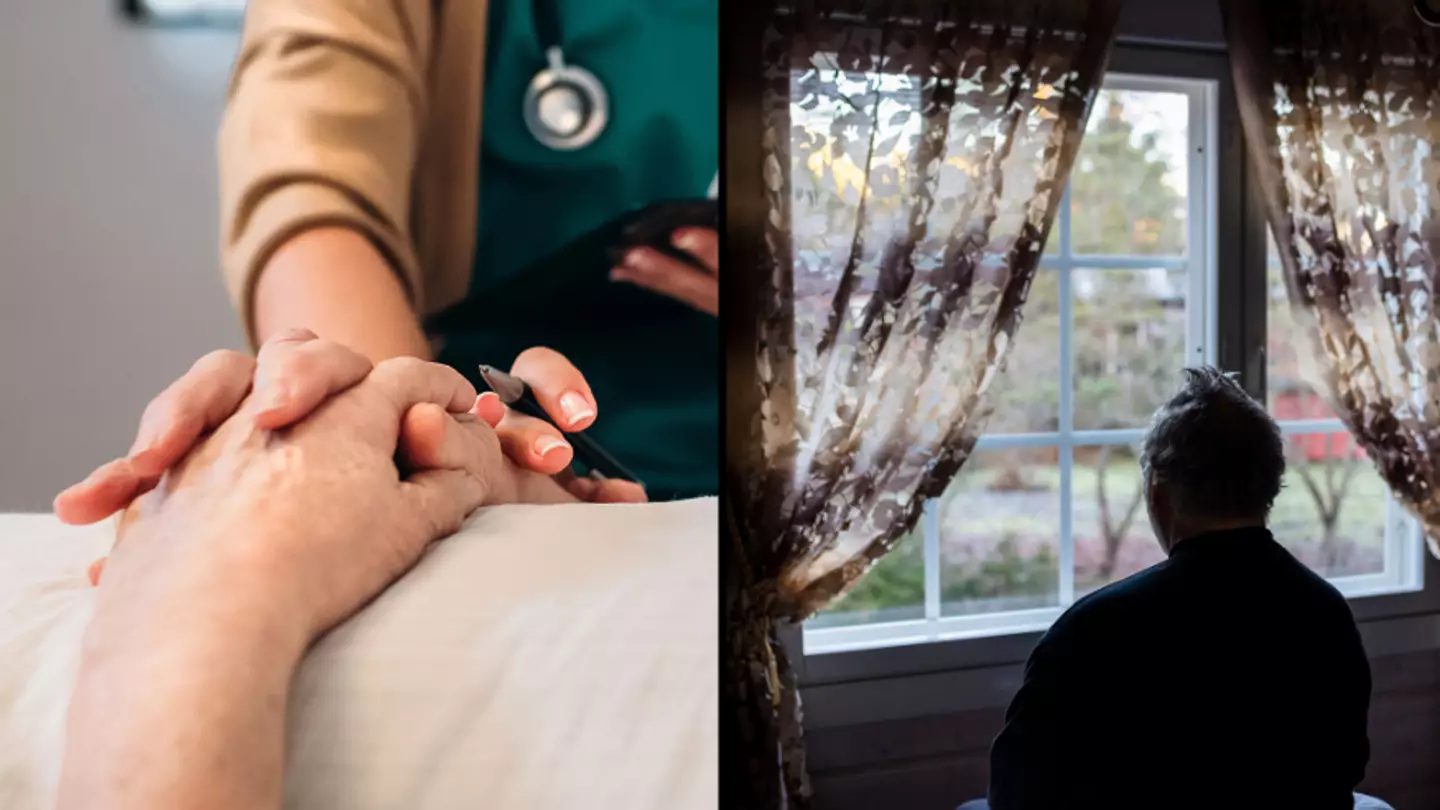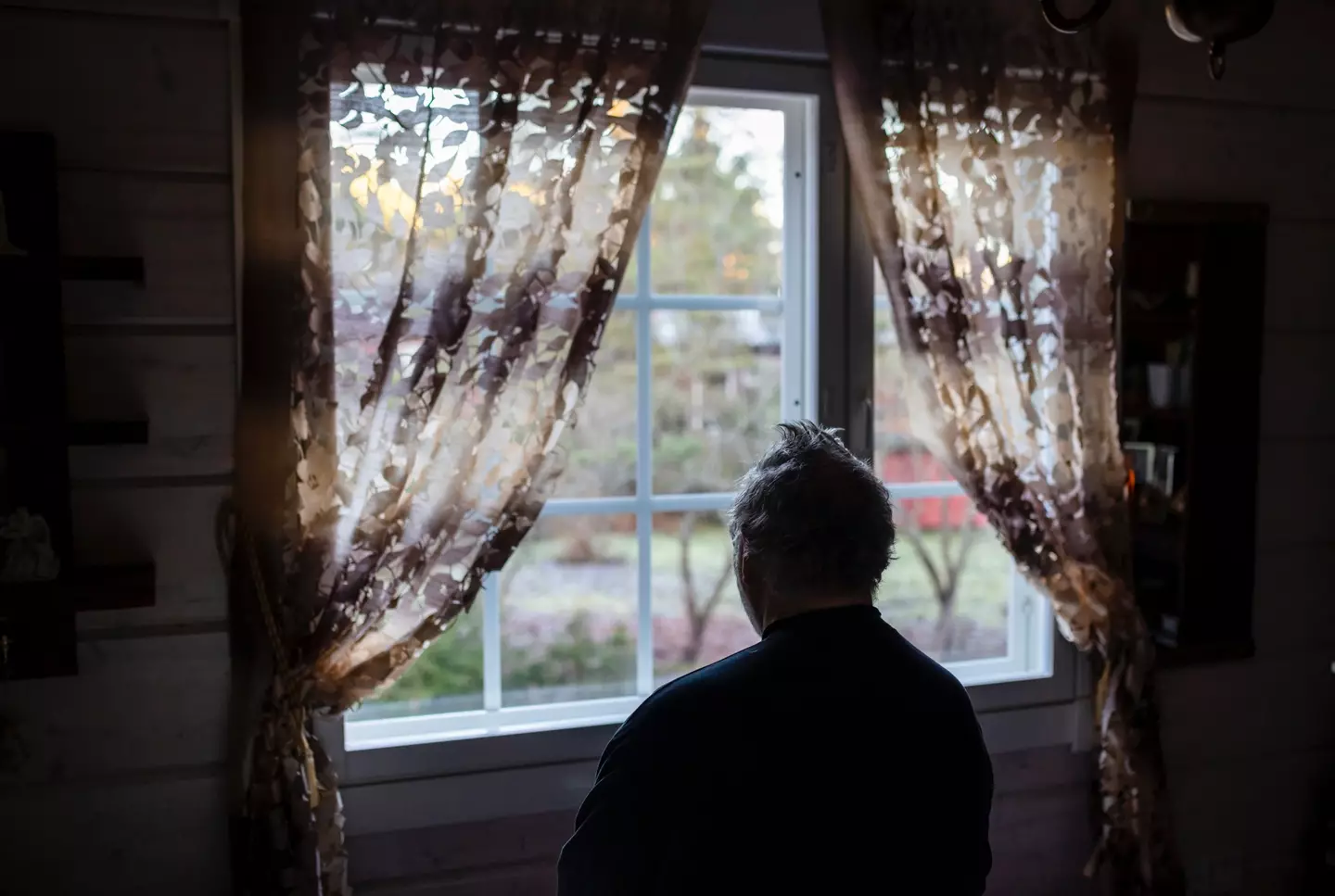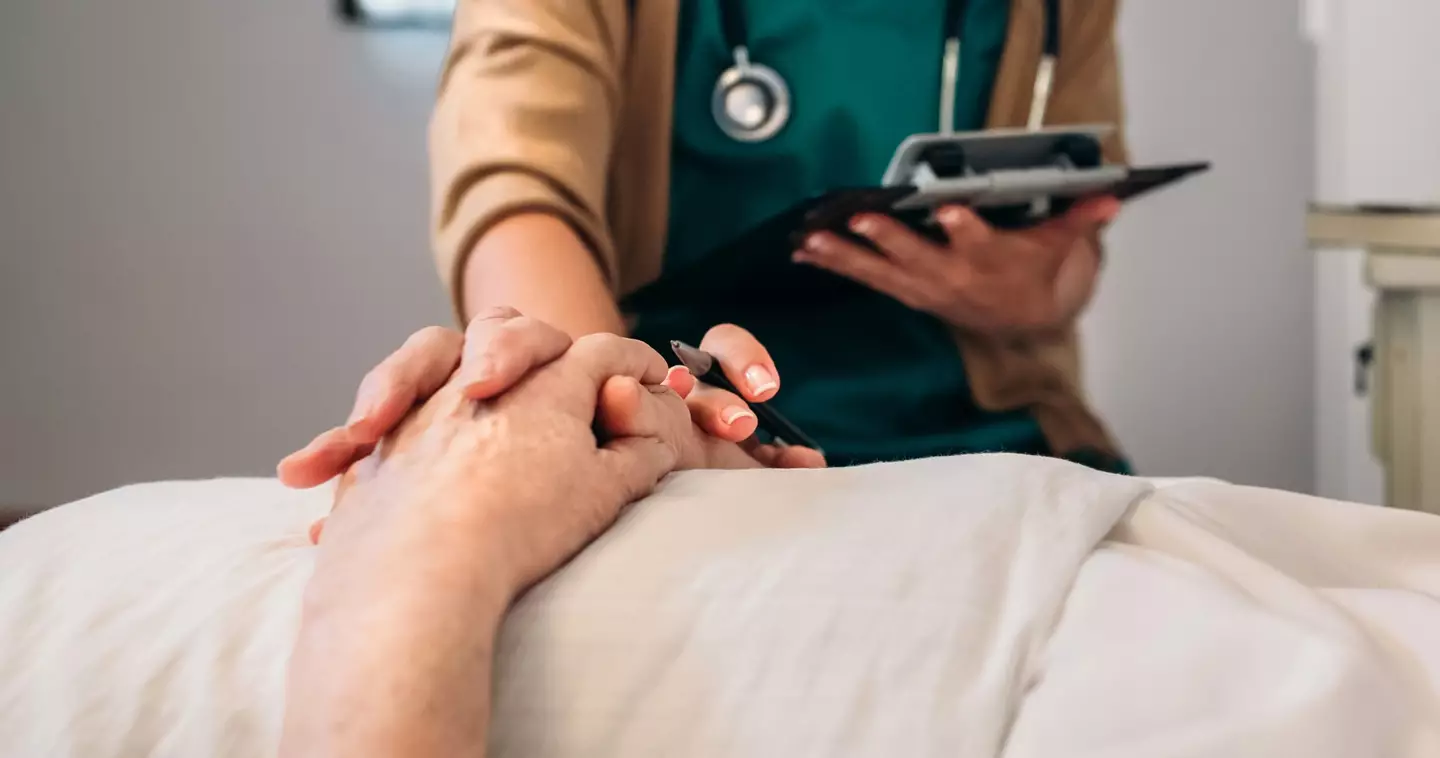
Death isn't the most cheerful topic to discuss, but at the end of the day, it's a fate all of us will face at some point.
Our mortality is viewed as both a blessing and a curse - depending on who you're talking to - but sitting and thinking about it certainly gives you a kick up the backside to head out and seize the day.
We don't know for sure what's waiting on the other side, so we may as well make the most of life while we're still around, rather than hanging fire until we are on our deathbeds.
But strangely enough, a lot of people seem to get a second wind shortly before they pass away - which can make it all the more painful when they eventually do.
Advert
Regardless of your emotions though, end-of-life nurse Ruby Gramlow says the only thing you can do is roll with it, as the 'priority is to make sure your loved one feels seen and heard'.
The mum, from the US, is one of the brave angels on this Earth who make people as comfortable as possible in their final days, holding their hands, wiping their tears, all while providing much needed company and care.
Ruby works for the independent, nonprofit hospice named Hospice of the Red River Valley (HRRV), which have various facilities dotted across more than 50 counties in North Dakota and Minnesota.
As you can imagine, she's seen it all in her line of work, so she likes to use her experiences to educate others on how to deal with death when it comes knocking.

In a blog post for HHRV, she encouraged people to provide 'comfort and support' to their relatives or loved ones by reminiscing over old memories, listening to special songs and saying everything you need to get off your chest.
Advert
She added: "Most importantly, being present with your loved one - even if you don’t know what to say or if you aren’t sharing the same experience - can be meaningful and create a sense of comfort and calm for the person."
The hospice nurse also advised people to brace themselves for the possibility that someone who is gravely unwell could suddenly seem as though they are on top of the world.
Although this might give you a flicker of hope that they aren't leaving just yet, Ruby warned that this 'unpredictable, mysterious flash of life and vitality' is a common phenomenon which occurs.
She explained: "You might have witnessed this surge of life yourself while attending to a loved one.
Advert
"This surge of energy is usually short, lasting anywhere from a few minutes to several hours, and may occur one to two days prior to death.
"This is unique to each person, and not everyone will experience such a noticeable burst of energy."

The nurse said that a lot of people on end-of-life care typically have a surge in their appetite, wakefulness, communication, and an energy boost 'disguised as restlessness or anxiety' shortly before they pass away.
Advert
Ruby continued: "This time can be often misinterpreted by loved ones as a recovery and that the patient is getting better. "It can be difficult for families and caregivers to acknowledge and understand these sudden changes as anything but signs of recovery. No one wants to lose someone they love.
"But it’s important the family understands what the patient is experiencing, so they can prepare themselves and the patient for what is to come."
Experts believe that various factors contribute to this unusual boost in energy, which is also referred to as terminal lucidity, such as changes in brain chemistry or possibly a final surge of neural activity.
If you have experienced a bereavement and would like to speak with someone in confidence, contact Cruse Bereavement Care via their national helpline on 0808 808 1677.
Featured Image Credit: Getty Stock Images